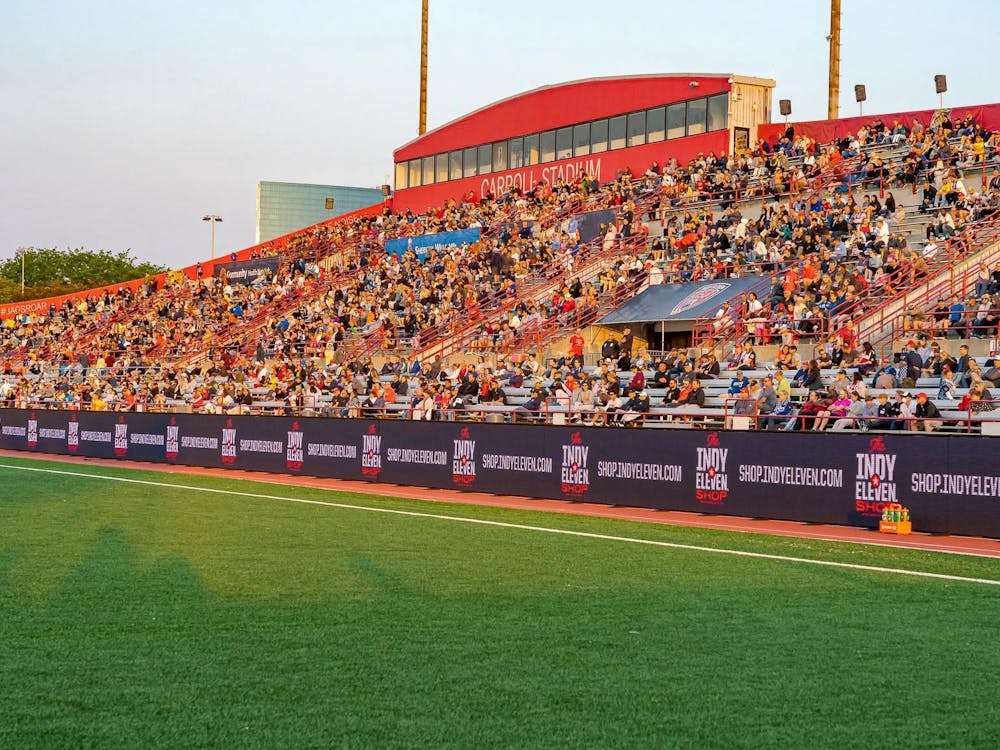Edward James Olmos wishes he would never have to give another seminar like he did Wednesday night in Pruis Hall.
"The things that I'm talking about are already so understood," Olmos said. "It's really nothing that you haven't heard before."
Olmos, a long-time actor and social activist, spoke about the definition of race, conflicting religion, personal identity and how none of those issues should divide us in front of a crowd of more than 600. He said that peace comes from loving all parts of oneself, no matter where those parts originate.
Alan Hargrave, associate vice president for Student Affairs, introduced Olmos in place of President Jo Ann Gora. Olmos wanted the house lights on over the crowd so that he could see everyone's faces. He said this allowed him to see what was on people's minds and let them teach him something in return.
He asked the Latino portion of the crowd if they loved their "indigenous" heritage and if they loved their Caucasian heritage also. Olmos said people could not hate any part of their heritage and not hate a part of themselves.
"Self-esteem, self-respect and self-worth are what make up a person," Olmos said. "With [those things], you don't want to hurt yourself."
The word "race" should be used in "the human race" and not be used to describe someone's skin color, Olmos said.
"When a bug doesn't like you, that's racial discrimination," he said. "When a person doesn't like you, that's discrimination, period. That's prejudice, period. Take the word ‘race' out of it."
Olmos brought a black student from the crowd to the stage to pose as a black Jesus. If people were open to the possibility that such an important figure could not be a Caucasian person, Caucasian children would be able to appreciate what other races have brought to the world. Children of other ethnic backgrounds would have "self-esteem, self-respect and self-worth," Olmos said.
He said society could be mixed without being a melting pot in which the individual parts lose their identity. Students should expose themselves to other cultures and information, he said.
"I don't think students should be concerned with what I say," Olmos said. "They just need to be exposed to it. That's what happens. Students are exposed to stuff in school. They need to come to terms with what I say and what will happen."
Mitch Isaacs, associate director of Student Life, started working on bringing Olmos to Ball State University in January of 2009, finishing the deal in July.
The organizations and offices that helped to fund Olmos' visit were Excellence in Leadership, the Latino Student Union, the Multicultural Center, the Career Center, the Miller College of Business, the Office of the Provost, Building Better Communities, Teachers College, the Department of Athletics and the College of Communication, Information, and Media.
Isaacs said students need to embrace diversity now.
"We live in an increasingly global society," Isaacs said. "If you don't see people as those you can relate to, how can you do business with them later on?"
Olmos said age has humbled him. He used to believe that he knew everything in his thirties, but as he has grown, he realizes how little he knows. He said that he has hope for future generations.
"I had to come to terms with [thinking] that I've helped a lot of people and have been a good person, but that I'm going to leave the world in worse shape than when I got here," Olmos said. "I hope that [new generations] won't have to do the same."




